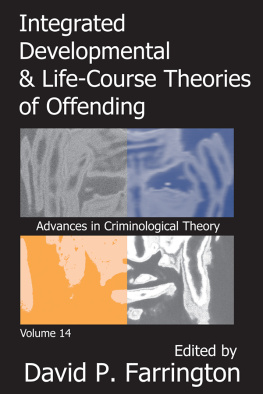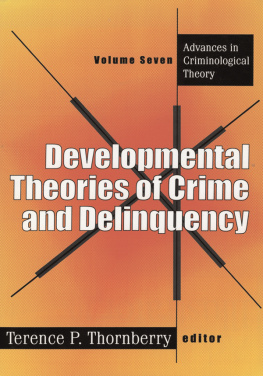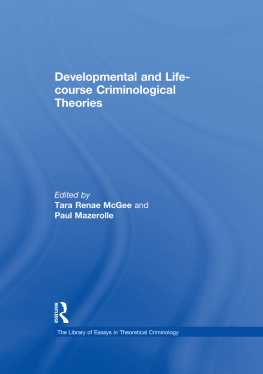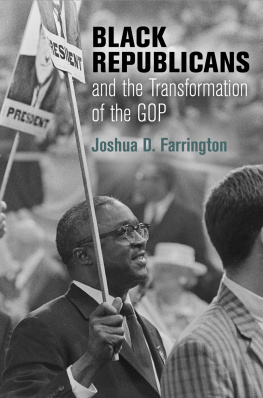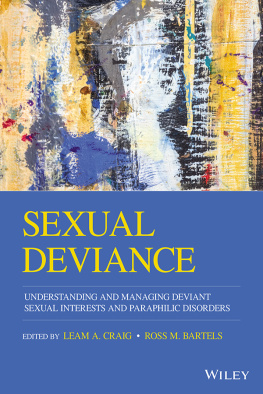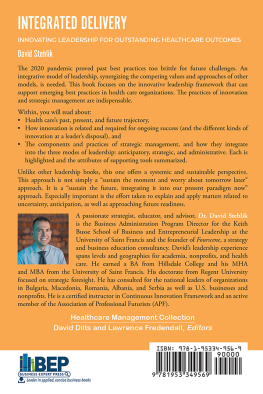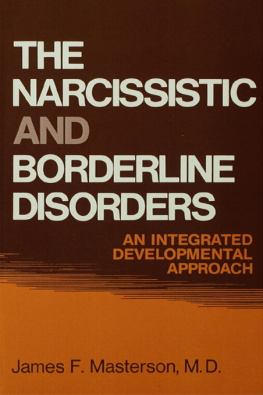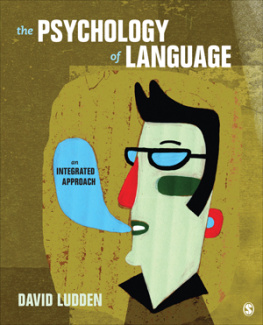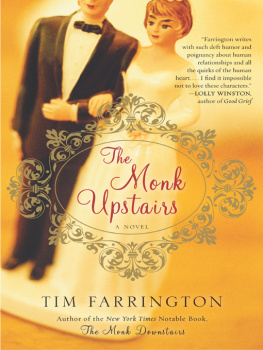David P. Farrington - Integrated Developmental and Life-course Theories of Offending
Here you can read online David P. Farrington - Integrated Developmental and Life-course Theories of Offending full text of the book (entire story) in english for free. Download pdf and epub, get meaning, cover and reviews about this ebook. year: 2008, publisher: Transaction Publishers, genre: Children. Description of the work, (preface) as well as reviews are available. Best literature library LitArk.com created for fans of good reading and offers a wide selection of genres:
Romance novel
Science fiction
Adventure
Detective
Science
History
Home and family
Prose
Art
Politics
Computer
Non-fiction
Religion
Business
Children
Humor
Choose a favorite category and find really read worthwhile books. Enjoy immersion in the world of imagination, feel the emotions of the characters or learn something new for yourself, make an fascinating discovery.
- Book:Integrated Developmental and Life-course Theories of Offending
- Author:
- Publisher:Transaction Publishers
- Genre:
- Year:2008
- Rating:3 / 5
- Favourites:Add to favourites
- Your mark:
- 60
- 1
- 2
- 3
- 4
- 5
Integrated Developmental and Life-course Theories of Offending: summary, description and annotation
We offer to read an annotation, description, summary or preface (depends on what the author of the book "Integrated Developmental and Life-course Theories of Offending" wrote himself). If you haven't found the necessary information about the book — write in the comments, we will try to find it.
Integrated Developmental and Life-course Theories of Offending — read online for free the complete book (whole text) full work
Below is the text of the book, divided by pages. System saving the place of the last page read, allows you to conveniently read the book "Integrated Developmental and Life-course Theories of Offending" online for free, without having to search again every time where you left off. Put a bookmark, and you can go to the page where you finished reading at any time.
Font size:
Interval:
Bookmark:
Developmental
& Life-Course Theories
of Offending
Rutgers University
University of Pennsylvania
Advances in Criminological Theroy
Robert Agnew Emory University | Joan McCord Temple University |
Ko-Lin Chin Rutgers University | Terrie E. Moffit University of Wisconsin-Madison |
Albert K. Cohen University of Connecticut | Gerhard O. W. Mueller Rutgers University |
Francis T. Cullen University of Cincinnati | Joan Petersillia University of California-Irvine |
Simon Dinitz Ohio State University | Robert J. Sampson University of Chicago |
Delbert Elliott University of Colorado | Kip Schlegel Indiana University |
David Farrington Cambridge University | Lawrence Sherman University of Pennsylvania |
James O. Finckenauer Rutgers University | David Weisburd Herbrew University |
John Laub University of Maryland | Elmar Weitekamp University of Tubingen |
William S. Laufer University of Pennsylvania | William Julius Wilson Harvard University |
Developmental
& Life-Course Theories
of Offending

Product or corporate names may be trademarks or registered trademarks, and are used only for identification and explanation without intent to infringe.
Font size:
Interval:
Bookmark:
Similar books «Integrated Developmental and Life-course Theories of Offending»
Look at similar books to Integrated Developmental and Life-course Theories of Offending. We have selected literature similar in name and meaning in the hope of providing readers with more options to find new, interesting, not yet read works.
Discussion, reviews of the book Integrated Developmental and Life-course Theories of Offending and just readers' own opinions. Leave your comments, write what you think about the work, its meaning or the main characters. Specify what exactly you liked and what you didn't like, and why you think so.

